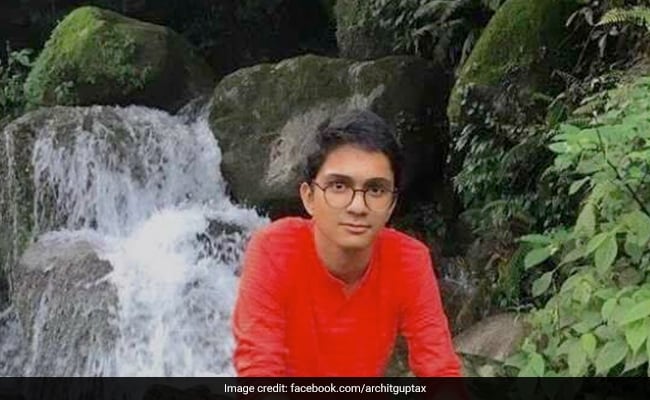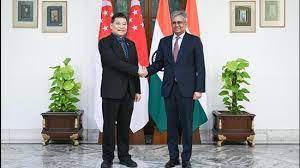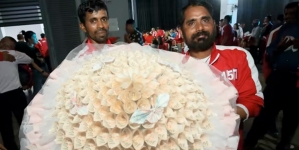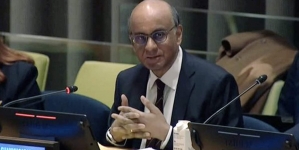-
CANBERRA: India-Australia partnership aims to bridge skill gap for future employment - April 15, 2024
-
HOUSTON: Mumbai boys in the final rounds of FIRST World Robotics competition to be held in Houston - April 14, 2024
-
MADRAS: IIT Madras NPTEL translates thousands of technical courses into several regional languages - April 10, 2024
-
MUMBAI: Shahid Kapoor opens up about the challenges faced by character actors in Bollywood - April 8, 2024
-
NEW DELHI: World Health Day 2024: Date, Theme, History, Significance and Interesting Facts - April 6, 2024
-
LONDON: Indian-Origin Teen In UK Gets “Life-Changing” Cancer Treatment - April 3, 2024
-
BENGALURU: Indian scientists unravel genetic secrets behind lumpy skin disease outbreak - March 30, 2024
-
NEW DELHI: Youngsters’ Increasing Stress Levels, Early Onset of Diseases an Alarming Health Trend: Apollo Hospitals Chief - March 28, 2024
-
MARYLAND: All About Pavan Davuluri, New Head Of Microsoft Windows - March 27, 2024
-
MUMBAI: Pyaar Kiya To Darna Kya turns 26: Kajol says THIS was the symbol of an innocent girl back then - March 27, 2024
SINGAPORE CITY: Indian-Led Team In Singapore To Send Machine Learning Software To Space
SINGAPORE CITY: An Indian is among five students from Singapore’s prestigious Nanyang Technological University (NTU) whose machine learning software will be going up on the International Space Station.
The NTU team, led by Archit Gupta, is getting an opportunity to test its project in the ISS after winning a competition on developing innovative ways to use artificial intelligence for space applications earlier this.
In the course of next three months, the team will install the software into an Artificial Intelligence box, a tiny supercomputer. Once that’s done, it will be physically transported to the space station.
“The purpose of the ISS is to collect experimental data, and if (single event upsets) happen, then the sanctity of the data gets compromised, and the experiment is wasted,” Mr Gupta, a second-year student from the School of Computer Science and Engineering told The Straits Time.
The disruptions are called single event upsets, which tend to afflict sensitive electrical components in space.
The 20-year-old’s software – Cremer – will a play a key role in predicting hardware disruptions on the ISS or satellites which can cause such space vehicles to go off course or crash, in the worst outcomes.
Cremer was named after an existing software called Creme, which also addresses single event upsets. “We wanted to build a better version of it, and hence we named it Cremer,” said Mr Gupta.
The project of Archit Gupta, who completed his schooling from the Delhi Public School, is said to be a game changer in space technology.
The other members of the NTU team are third-year business student Sim See Min, 22, third-year mechanical engineering student Deon Lim, 24, and second-year electrical and electronic engineering student Rashna Ahmed, 21.
























